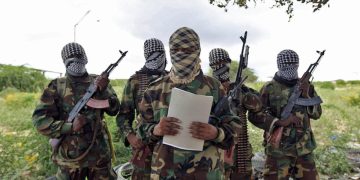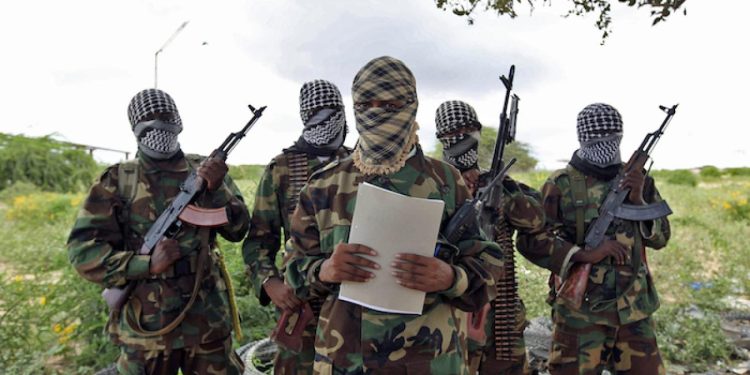The Islamic State West Africa Province (ISWAP) has issued new operational guidelines to its members following reports of potential U.S. military action in Nigeria. The terrorist group released a propaganda message condemning former U.S. President Donald Trump’s alleged plan to target Islamist militants in the country.
In the statement shared via its usual media outlets, ISWAP branded Trump a “reckless American tyrant,” claiming he was influenced by “evangelical Christian and Jewish advisers.” The group accused Washington of using religion as a political weapon to present itself as a “global defender of Christians.”
ISWAP warned that such rhetoric could push the United States into more military conflicts across Africa, referencing the crises in Mozambique and the Democratic Republic of Congo as examples of what it described as “failed Western interventions.”
The statement also linked these developments to the Islamic State’s broader goal of stretching U.S. military power across several war zones, naming Iraq, Syria, Afghanistan, Somalia, and the Lake Chad Basin as key areas of confrontation.
To counter possible attacks, ISWAP instructed its members to avoid public gatherings, reduce movement, and minimize smartphone use, citing “heightened drone surveillance” and “imminent air operations” by the U.S.
The group further urged Muslims across West Africa to “unite and prepare,” accusing Western nations of committing atrocities against African Muslims under the guise of counterterrorism.
Meanwhile, The New York Times reported that the U.S. military has developed several contingency plans for possible strikes in Nigeria. The move follows Trump’s directive to the Pentagon to “prepare to intervene” in response to what he described as ongoing persecution of Christians by extremist groups.
According to the report, the U.S. Africa Command (AFRICOM) submitted three strategic options—classified as “heavy,” “medium,” and “light.”
- The heavy option involves deploying an aircraft carrier strike group to the Gulf of Guinea, supported by fighter jets and long-range bombers targeting ISWAP strongholds in northern Nigeria.
- The medium option focuses on drone operations using MQ-9 Reaper and MQ-1 Predator aircraft to strike identified insurgent camps and convoys, guided by U.S. intelligence assets.
- The light option emphasizes intelligence sharing and logistical support to Nigerian forces, enabling joint operations against Boko Haram and other Islamist factions.
Military officials, however, acknowledged that airstrikes alone may not bring lasting peace to Nigeria’s long-running insurgency unless followed by a broader intervention similar to U.S. campaigns in Iraq or Afghanistan — a move that Washington remains reluctant to pursue.
On Wednesday, Trump reiterated his readiness to act if attacks on Christians in Nigeria continue. He wrote:
“Christianity is facing an existential threat in Nigeria. The United States cannot stand by while such atrocities are happening. We stand ready, willing, and able to protect our great Christian population worldwide.”
In response to the growing tension, China reaffirmed its support for Nigeria’s sovereignty, pledging to back the country as it continues its development path “in line with its national realities.”















